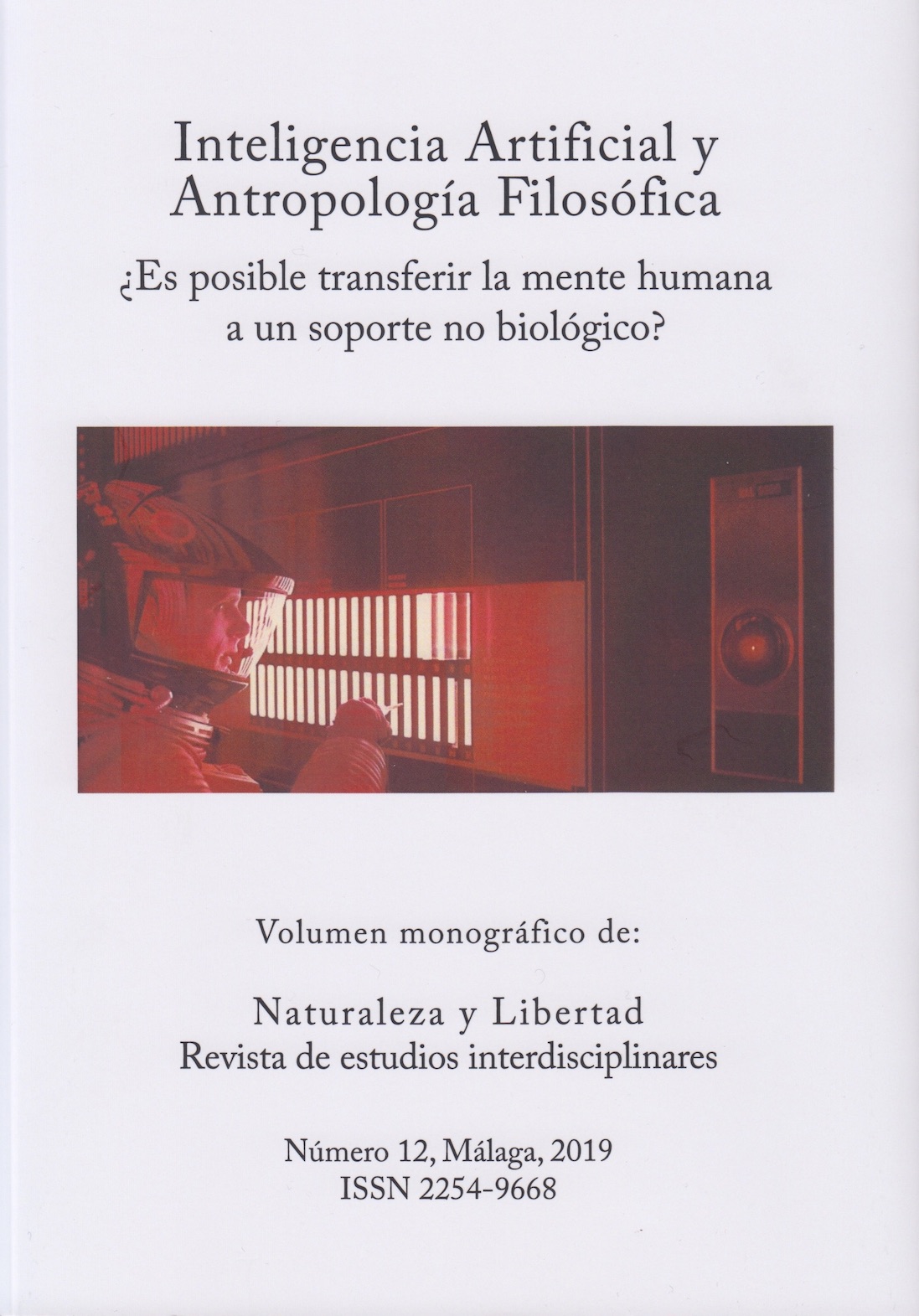Discusión crítica acerca de los principios que inspiran la supuesta necesidad y legitimidad del mejoramiento humano
DOI:
https://doi.org/10.24310/NATyLIB.2019.v0i12.6278Keywords:
transhumanismo, mejoramiento humano, paradigma materialista-mecanicista, legitimidad moral, modelos comprensivos alternativos,Abstract
La pretendida aceptación entusiasta del proyecto transhumanista que parece dominar buena parte del ámbito filosófico y tecno-científico más influyente y mejor dotado de medios para su desarrollo y ejecución no puede ser neutralizada desde dentro del paradigma que lo ha visto y hecho nacer. Tal es el paradigma materialista-fisicalista-mecanicista, un paradigma esencialmente causalista, geométrico, determinista y reduccionista que o bien niega la existencia de lo que no puede explicar, o bien lo reduce a partes elementales, igualmente desconocidas, pero obediente metodológicamente al dogma del análisis, la síntesis y la medida.Downloads
Metrics
References
J. Arnau, La fuga de Dios. Las ciencias y otras narraciones, Girona, Atalanta, 2017.
O. Barfield, Salvar las apariencias, Girona, Atalanta, 2015.
D. Bohm, La totalidad y el orden implicado, Barcelona, Kairós, 2014.
E. Carbonell / R. Sala, Aún no somos humanos. Propuestas de humanización para el tercer milenio, Barcelona, Quinteto, 2003.
J. L. Cordeiro / D. Wood, La muerte de la muerte, Barcelona, Deusto, 2018.
A. Diéguez, La vida bajo escrutinio. Una introducción a la filosofía de la biología, España, Biblioteca Buridán, 2012
A. Diéguez, Transhumanismo. La búsqueda tecnológica del mejoramiento humano, Barcelona, Herder, 20017.
P. Feyerabend, Tratado contra el método, Madrid, Tecnos, 1981.
P. Feyerabend, La conquista de la abundancia, Barcelona, Paidós Básica, 2000.
N.Y. Harari, Homo deus, Barcelona, Debate, 2017.
R. Sheldrake, El espejismo de la ciencia, Barcelona, Kairós, 2012.
Downloads
Published
How to Cite
Issue
Section
License
Those authors who have publications with this journal, accept the following terms:
1. Copyright and licensing information are clearly described on the journal’s web site: all content published in Naturaleza y Libertad is open acces without limit, and are subject to the Attribution-NonCommercial-ShareAlike 4.0 International (CC BY-NC-SA 4.0) license. The full text of which can be consulted at https://creativecommons.org/licenses/by-nc-sa/4.0/
2. It is the responsibility of the authors to obtain the necessary permissions for the images that are subject to copyright. The authors whose contributions are accepted for publication in this journal will retain the non-exclusive right to use their contributions for academic, research and educational purposes, including self-archiving or deposit in open access repositories of any kind. The electronic edition of this magazine is edited by the Editorial de la University of Malaga (UmaEditorial), being necessary to cite the origin in any partial or total reproduction.
3. This journal allows and encourages authors to publish papers on their personal websites or in institutional repositories, both before and after their publication in this journal, as long as they provide bibliographic information that accredits, if applicable, your posting on it.
4. In no case will anonymous papers be published.





18.png)













